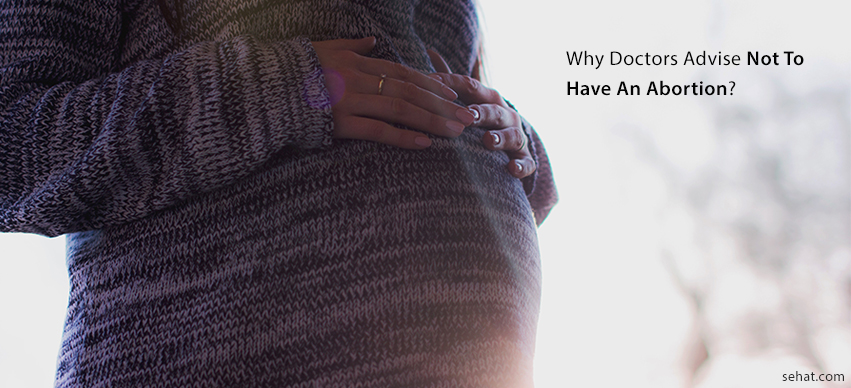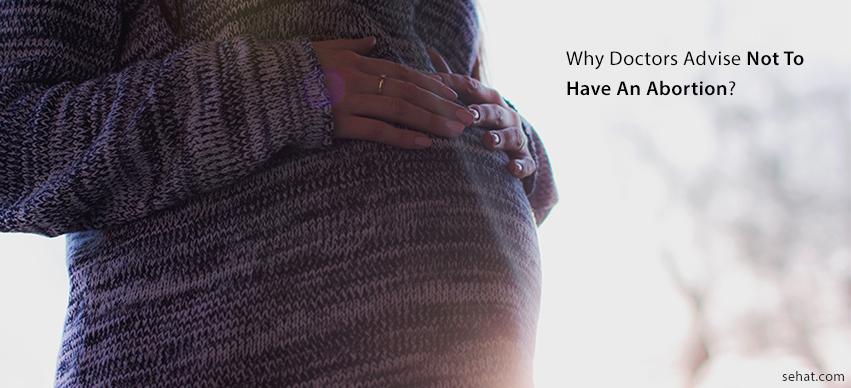Miscarriage In Early Pregnany- Signs, Causes, And Tips To Prevent
6 Min Read


Abortion is defined as the natural or artificial removal of a fetus from the uterus. The topic of abortion is sensitive and may raise a lot of discomforts depending on the person. Some communities consider it as a taboo. The opinion is mainly based on the religion and upbringing of the individual. Before considering whether or not to go through with an abortion, it is vital to research and analyze the available medical facts so you can make well-informed decisions.
You also need to research on the do’s and don’ts after abortion. This information may seem unnecessary to you if you have never considered having an artificial abortion, but it can be used to advise a friend and may even save a life. Since it’s a controversial topic, college students who choose to write an essay on abortion should recognize the sensitivity of the issue and may seek help to understand how to navigate it.
Abortion has many emotional and physiological effects on a person. Understanding this is critical before making a decision. The physiological effects may be life-threatening while the emotional effects negatively affect mental health. The associated risks are the main reasons why doctors advise patients against fetus termination.
One of the most health effects is postabortal syndrome which may lead to loss of life. Postabortal syndrome refers to a condition where the cervix is immediately blocked by tissue or blood clot after the procedure is completed. It prevents the proper normal evacuation of the contents of the uterus and also prevents the uterus from returning to its normal size.
The uterus continues to bleed and cannot contract. Some of the symptoms that are observed in postabortal syndrome include severe cramping, nausea, vomiting, lightheadedness, sweating, and paleness.
Bleeding is also experienced after an abortion and typically continues for three to four days and should not exceed a heavy period flow under normal conditions. Excess bleeding after abortion procedures is the leading cause of deaths in abortion patients.
Even after an abortion, the emotional effects of pregnancy will still be felt. This is because it takes about three to four weeks for pregnancy hormones to dissipate. As such, you may continue to have the following;
Patients may experience trauma and feel violated during and after the operation.
Women react differently to the experience with some reporting feeling a sense of relief while others suffer from depression and exhibit self-destructive tendencies and depression. The emotional effects are referred to as Post Abortion Syndrome (PAS) which has been recognized as a form of Post-Traumatic Stress Disorder (PTSD). The reactions experienced may include
The emotional turmoil experienced may lead to thoughts of suicide or suicide attempts.
Understanding all these symptoms is important. It helps you to know how to offer care to post-abortion patients or even yourself. Due to the many physiological and emotional effects of abortion, doctors tend to discourage it since patients experience many effects that may lead to death. The emotional effects may cause the patients to have self-harming thoughts. The most desirable option would be to give birth to the baby and give him/her up for adoption. Abortion cases will seemingly decrease if teenage pregnancy does not lead to segregation of the teenager. Though unwanted pregnancies should be discouraged, they should not be demonized when they occur. Instead, people should be encouraged and supported and guided towards the best solution.
There is a need for education on how to care and help postabortal patients. Students have different views on abortion which may be articulated in the essays they write. Abortion essays communicate different views and ideas. The arguments discussed in the essays may be pro-abortion or anti-abortion. You must, however, be sensitive as to how you tackle the issue to avoid creating offense.
With the increase in contraceptive measures, abortion cases have continued to decrease over the past few years. The following table describes the number of cases in various years.
| Year | Number of Abortion Cases |
| 2015 | 638,169 |
| 2014 | 652,639 |
| 2013 | 644,435 |
| 2012 | 699,202 |
| 2011 | 730,322 |
| 2010 | 765,651 |
| 2009 | 784,507 |
| 2008 | 825,564 |
| 2007 | 827,609 |
| 2006 | 846,181 |
| 2005 | 820,151 |
| 2000 | 857,475 |
| 1995 | 1,210,883 |
| 1990 | 1,429,247 |
| 1985 | 1,328,570 |
| 1980 | 1,297,606 |
Abortion is discouraged since it has numerous emotional and physiological effects that may lead to depression, suicidal thoughts, and death. For this reason, other alternatives such as adoption should be considered to preserve life. Contraception should also be encouraged to avoid unwanted/ unplanned pregnancy.